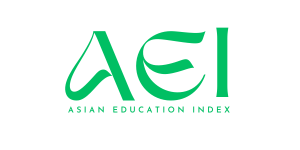Forms, methods and means of using foreign experience in the organization of educational activities in non-state preschool education
Keywords:
external quality assessment system, development of pre-school education, international experienceAbstract
The article presents an analytical review of the systems of external independent evaluation of preschool education quality in the United States and Singapore. Special attention is given to the specifics of the National Association for the Education of Young Children (NAEYC) as well as programs like STARS (Pennsylvania, USA) and SPARK (Singapore). The key characteristics of external quality assessment in these countries include voluntary participation, the presence of a PR component (so that parents understand how to navigate in a variety of kindergartens), support of leadership qualities and training managers within organizations, the use of standardized rating scales (eg, ECERS-R), which have been recognized by the international community and focus more on evaluating environmental performance rather than children's results. So the review of the foreign practices of organizing pre-school education quality assessment helps us to better understand how to form our national system of independent expert examination of pre-school education in the most productive way
References
Alimdjanovna, X. M. (2022). CLIMATE CONTROL AND LIGHT CONTROL IN A SMART HOME. European Journal of Interdisciplinary Research and Development, 8, 149-155.
Ergashevna, K. M. (2021). Factors for improving the quality of education in primary schools of non-state educational institutions. ACADEMICIA: An International Multidisciplinary Research Journal, 11(9), 792-796.
Jo‘rayev, V. T. (2019). The advantage of distance learning courses in the process of education. Scientific Bulletin of Namangan State University, 1(9), 220-224.
Jo’rayev Vohid Tojimamatovich, A. M. (2022). Working With Geospatial and Descriptive Data in A Geoinformation System. Periodica Journal of Modern Philosophy, Social Sciences and Humanities, 11, 113-116.
Jurayev, V. T. (2020). PEDAGOGICAL SOFTWARE IN THE PREPARATION OF FUTURE TEACHERS OF INFORMATICS IN AN INNOVATIVE ENVIRONMENT. Theoretical & Applied Science, (4), 182-185.
Khallokova, M. E. (2018). Important Aspects of Establishing Non-State Educational Institutions. Eastern European Scientific Journal, (2).
Mukhtoraliyevna, Z. S. (2021). The Use Of Vocabulary Words In The Dictionary Given In The Textbook Of The 1st Class Native Language And Reading Literacy. International Journal Of Culture And Modernity, 10, 39-42.
Mukhtoraliyevna, Z. S. (2022). Develop Students' Speech by Working on Synonyms and Antonyms in Grades 3-4 in their Native Language Classes. European Multidisciplinary Journal of Modern Science, 6, 125-130.
Muxtoraliyevna, Z. S. (2022). ENANTIOSEMANTIK KONGRUENTLIK. BARQARORLIK VA YETAKCHI TADQIQOTLAR ONLAYN ILMIY JURNALI, 2(11), 105-109.
Shuhratovna, D. S. (2022). COGNITIVE LINGUISTICS AND NEUROLINGUISTICS. TA'LIM VA RIVOJLANISH TAHLILI ONLAYN ILMIY JURNALI, 2(10), 308-321.
Sobirjonovich, S. I. (2022). Cooperation Technologies: As an Available and Effective Method in Preschool Education. CENTRAL ASIAN JOURNAL OF SOCIAL SCIENCES AND HISTORY, 3(12), 184-189.
Sobirjonovich, S. I. (2022). PARTNERSHIPS OF A PRESCHOOL EDUCATIONAL INSTITUTION AND SOCIETY AS A FACTOR OF IMPROVING THE QUALITY OF EDUCATION. BARQARORLIK VA YETAKCHI TADQIQOTLAR ONLAYN ILMIY JURNALI, 2(12), 317-319.
Sobirjonovich, S. I. (2022). THE ROLE OF DIDACTIC TOOLS IN THE FORMATION OF SPEECH OF STUDENTS OF PREPARATORY GROUPS IN PRESCHOOL EDUCATIONAL ORGANIZATIONS. BARQARORLIK VA YETAKCHI TADQIQOTLAR ONLAYN ILMIY JURNALI, 2(11), 375-380.
Soliyev, I. S., & qizi Ergasheva, D. S. (2022). BOSHLANG ‘ICH TA’LIM FANLARINI O ‘QITILISH JARAYONIDA SHARQ MUTAFAKKIRLARI ME’ROSIDAN UNUMLI FOYDALANISH. RESEARCH AND EDUCATION, 1(8), 16-20.
Tojimamatovich, J. V., & Alimdjanovna, X. M. (2022). Basic Concepts of the Smart Home System. International Journal of Culture and Modernity, 17, 7-13.
Zokirov, M. T., & Dadabayeva, S. S. (2020). ABOUT THE ROLE OF LANGUAGES CONTACTS IN THE DEVELOPMENT OF LANGUAGES. Theoretical & Applied Science, (4), 687-691.
Zokirov, M. T., Zokirova, S. M., & Dadabayeva, S. S. (2021). About The Influence Of The Uzbek Language In Rishtan Tajik Dialects Of Ferghana Region. Turkish Online Journal of Qualitative Inquiry, 12(4).
Zokirova, S. M. (2014). The Issue Of Word Combination In Languages Of Different Structures On The Examples Of The Uzbek And Tajik Languages. The Way Of Science, 135.
Зокирова, С. М. (2019). Контрастный анализ синтактических слойных установок. Вестник Наманганского государственного университета: Vol, 1(8), 48.
Солиев, И. С., & Муродиллаевич, Қ. Н. (2020). Бўлажак бошланғич синф ўқитувчиларининг ахборот компетентлигини ривожлантириш. Образование, 9, 10-11.
Халлокова, М. (2022). Нодавлат таълим муассасаларида таълим тизимини модернизациялаш. Общество и инновации, 3(1), 151-157.
Dadabaeva, S. (2020, December). COMPARISON APPROACH AND ITS EXPRESSOR LANGUAGE TOOLS. In Конференции.
Downloads
Published
Issue
Section
License

This work is licensed under a Creative Commons Attribution-NonCommercial 4.0 International License.
User Rights
Under the Creative Commons Attribution-NonCommercial 4.0 International (CC-BY-NC), the author (s) and users are free to share (copy, distribute and transmit the contribution).
Rights of Authors
Authors retain the following rights:
1. Copyright and other proprietary rights relating to the article, such as patent rights,
2. the right to use the substance of the article in future works, including lectures and books,
3. the right to reproduce the article for own purposes, provided the copies are not offered for sale,
4. the right to self-archive the article.













